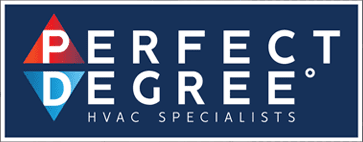In healthcare environments, Heating, Ventilation, and Air Conditioning (HVAC) systems play a vital role beyond basic comfort. They are essential for protecting the health and well-being of patients, staff, and visitors. The unique demands of healthcare settings require HVAC systems that go above and beyond to support air quality, infection control, and overall patient care. In this post, we’ll explore the importance of HVAC in healthcare facilities and how these systems contribute to both clinical outcomes and operational efficiency.

Critical Role of HVAC in Air Quality and Infection Control
Hospitals, clinics, nursing homes, and other medical facilities must maintain exceptional indoor air quality to minimize the risk of infection, especially among patients with compromised immune systems. Advanced HVAC systems utilize high-efficiency particulate air (HEPA) filters and modern air purification technologies to remove airborne contaminants, including bacteria, viruses, dust, and allergens. These filters are capable of capturing particles as small as 0.3 microns.
Proper ventilation is equally important. Strategically designed airflow and pressure differentials help prevent cross-contamination between departments, reduce the spread of airborne diseases, and ensure a constant supply of fresh, clean air throughout the facility.
Enhancing Patient Comfort Through Temperature and Humidity Control
Maintaining patient comfort is crucial for recovery. Healthcare HVAC systems are designed to provide precise control over temperature and humidity, creating a healing environment that supports patient well-being. These systems are engineered to operate consistently across a range of settings, from patient rooms and ICUs to surgical suites and equipment storage areas.
Quiet operation is another key feature, reducing unnecessary noise that can disrupt rest, sleep, or concentration during medical procedures.
Energy Efficiency and Operational Cost Savings in Healthcare HVAC
Healthcare facilities operate around the clock, which makes energy efficiency a top priority. Modern HVAC systems are equipped with smart technologies that automatically adjust ventilation, heating, and cooling based on real-time occupancy and external weather conditions. This approach not only improves environmental control but also significantly reduces energy consumption and long-term operational costs.
Expertise and Compliance in HVAC Implementation
Installing HVAC systems in healthcare settings requires deep industry knowledge and strict adherence to healthcare-specific codes and regulations. Experienced HVAC professionals understand the complexities involved in designing and implementing systems that meet state and federal standards while ensuring reliable indoor air quality and climate control.
Meeting these standards isn’t just about compliance—it’s about protecting lives, maintaining clinical integrity, and ensuring medical equipment functions properly.
HVAC Maintenance and Service: Ensuring Continuous Performance
Ongoing maintenance is critical for keeping HVAC systems in peak condition. Routine inspections and preventive servicing reduce the risk of unexpected breakdowns, ensure consistent performance, and extend the lifespan of the system. For healthcare facilities, where system failures can have serious consequences, it’s essential to work with HVAC providers who offer tailored maintenance plans that address the unique challenges of medical environments.
Trust Perfect Degree HVAC for Healthcare HVAC Solutions
Perfect Degree HVAC delivers specialized HVAC solutions designed for the unique demands of healthcare facilities. Whether you’re upgrading your current system or seeking expert maintenance, our team ensures superior air quality, climate control, and energy efficiency tailored to your needs. To learn more about how we can support your facility in Drexel Hill, PA, contact us today at (610) 579-1984 or submit an inquiry through our online form.


